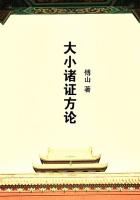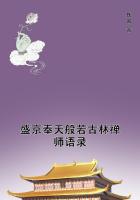For every year at the festival of Zagmuk the king had to renew his power by seizing the hands of the image of Marduk in his great temple of Esagil at Babylon. Even when Babylon passed under the power of Assyria, the monarchs of that country were expected to legalise their claim to the throne every year by coming to Babylon and performing the ancient ceremony at the New Year festival, and some of them found the obligation so burdensome that rather than discharge it they renounced the title of king altogether and contented themselves with the humbler one of Governor. Further, it would appear that in remote times, though not within the historical period, the kings of Babylon or their barbarous predecessors forfeited not merely their crown but their life at the end of a year's tenure of office. At least this is the conclusion to which the following evidence seems to point. According to the historian Berosus, who as a Babylonian priest spoke with ample knowledge, there was annually celebrated in Babylon a festival called the Sacaea. It began on the sixteenth day of the month Lous, and lasted for five days, during which masters and servants changed places, the servants giving orders and the masters obeying them. A prisoner condemned to death was dressed in the king's robes, seated on the king's throne, allowed to issue whatever commands he pleased, to eat, drink, and enjoy himself, and to lie with the king's concubines. But at the end of the five days he was stripped of his royal robes, scourged, and hanged or impaled. During his brief term of office he bore the title of Zoganes. This custom might perhaps have been explained as merely a grim jest perpetrated in a season of jollity at the expense of an unhappy criminal. But one circumstancethe leave given to the mock king to enjoy the king's concubinesis decisive against this interpretation.
Considering the jealous seclusion of an oriental despot's harem we may be quite certain that permission to invade it would never have been granted by the despot, least of all to a condemned criminal, except for the very gravest cause. This cause could hardly be other than that the condemned man was about to die in the king's stead, and that to make the substitution perfect it was necessary he should enjoy the full rights of royalty during his brief reign.
There is nothing surprising in this substitution. The rule that the king must be put to death either on the appearance of any symptom of bodily decay or at the end of a fixed period is certainly one which, sooner or later, the kings would seek to abolish or modify. We have seen that in Ethiopia, Sofala, and Eyeo the rule was boldly set aside by enlightened monarchs; and that in Calicut the old custom of killing the king at the end of twelve years was changed into a permission granted to any one at the end of the twelve years' period to attack the king, and, in the event of killing him, to reign in his stead; though, as the king took care at these times to be surrounded by his guards, the permission was little more than a form. Another way of modifying the stern old rule is seen in the Babylonian custom just described. When the time drew near for the king to be put to death (in Babylon this appears to have been at the end of a single year's reign) he abdicated for a few days, during which a temporary king reigned and suffered in his stead. At first the temporary king may have been an innocent person, possibly a member of the king's own family; but with the growth of civilisation the sacrifice of an innocent person would be revolting to the public sentiment, and accordingly a condemned criminal would be invested with the brief and fatal sovereignty. In the sequel we shall find other examples of a dying criminal representing a dying god. For we must not forget that, as the case of the Shilluk kings clearly shows, the king is slain in his character of a god or a demigod, his death and resurrection, as the only means of perpetuating the divine life unimpaired, being deemed necessary for the salvation of his people and the world.
A vestige of a practice of putting the king to death at the end of a year's reign appears to have survived in the festival called Macahity, which used to be celebrated in Hawaii during the last month of the year. About a hundred years ago a Russian voyager described the custom as follows: The taboo Macahity is not unlike to our festival of Christmas. It continues a whole month, during which the people amuse themselves with dances, plays, and sham-fights of every kind. The king must open this festival wherever he is. On this occasion his majesty dresses himself in his richest cloak and helmet, and is paddled in a canoe along the shore, followed sometimes by many of his subjects. He embarks early, and must finish his excursion at sunrise. The strongest and most expert of the warriors is chosen to receive him on his landing. This warrior watches the canoe along the beach; and as soon as the king lands, and has thrown off his cloak, he darts his spear at him, from a distance of about thirty paces, and the king must either catch the spear in his hand, or suffer from it: there is no jesting in the business. Having caught it, he carries it under his arm, with the sharp end downwards, into the temple or heavoo. On his entrance, the assembled multitude begin their sham-fights, and immediately the air is obscured by clouds of spears, made for the occasion with blunted ends. Hamamea [the king] has been frequently advised to abolish this ridiculous ceremony, in which he risks his life every year; but to no effect. His answer always is, that he is as able to catch a spear as any one on the island is to throw it at him. During the Macahity, all punishments are remitted throughout the country; and no person can leave the place in which he commences these holidays, let the affair be ever so important.
That a king should regularly have been put to death at the close of a year's reign will hardly appear improbable when we learn that to this day there is still a kingdom in which the reign and the life of the sovereign are limited to a single day. In Ngoio, a province of the ancient kingdom of Congo, the rule obtains that the chief who assumes the cap of sovereignty is always killed on the night after his coronation. The right of succession lies with the chief of the Musurongo; but we need not wonder that he does not exercise it, and that the throne stands vacant. No one likes to lose his life for a few hours' glory on the Ngoio throne.















